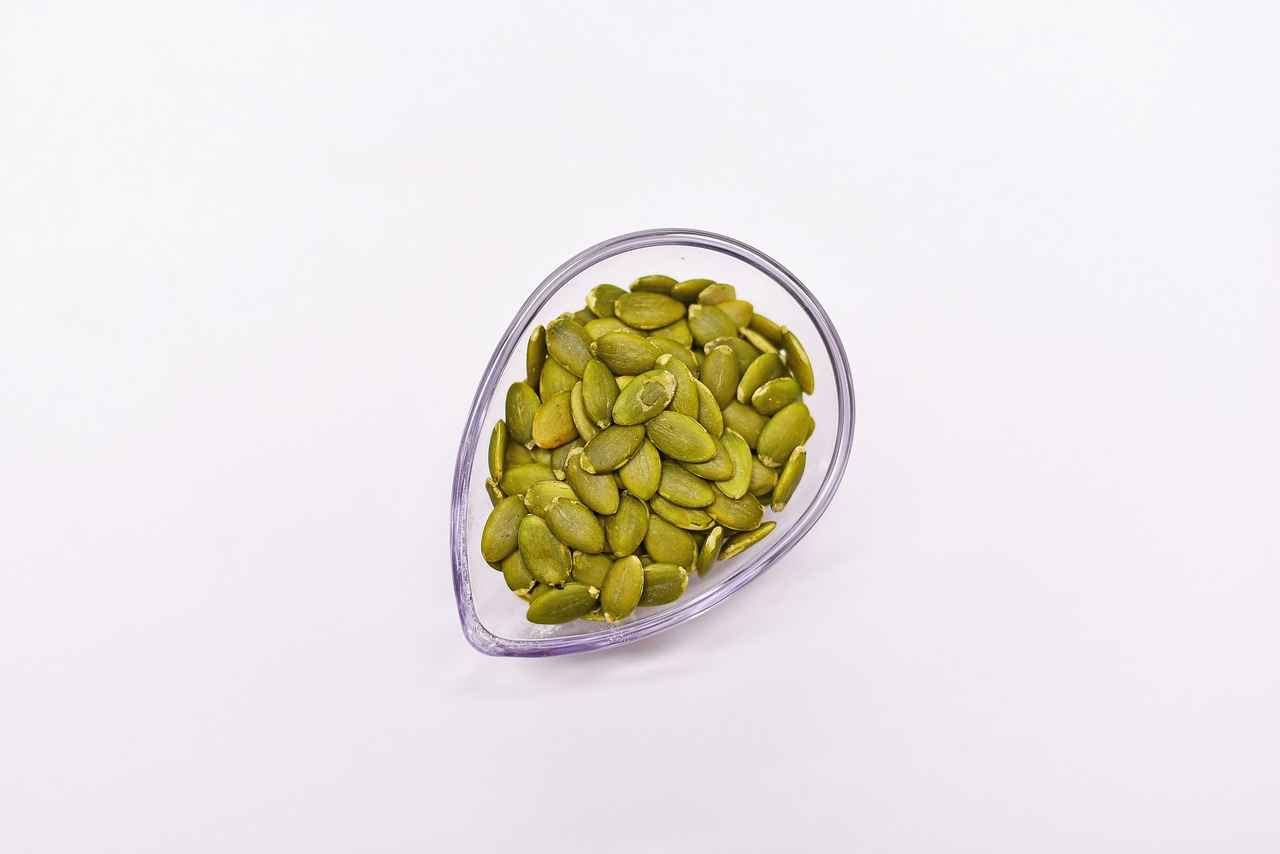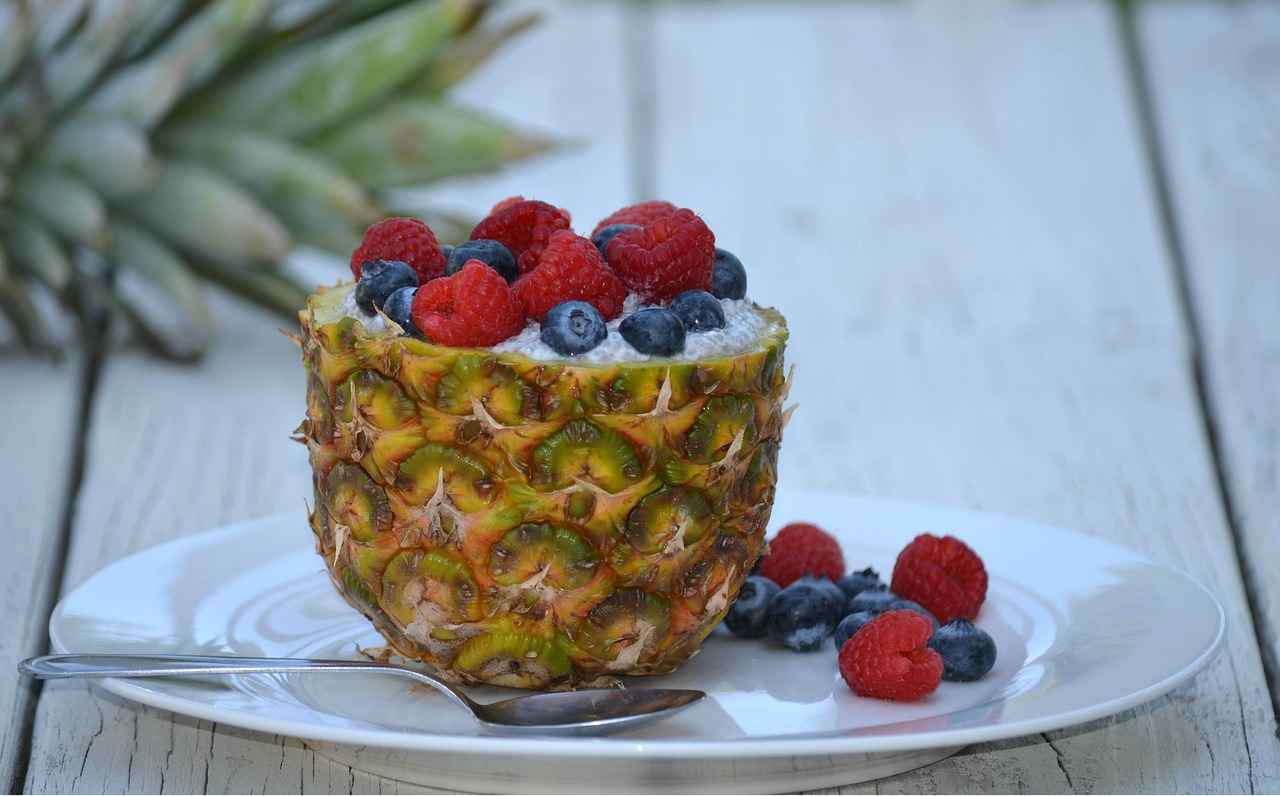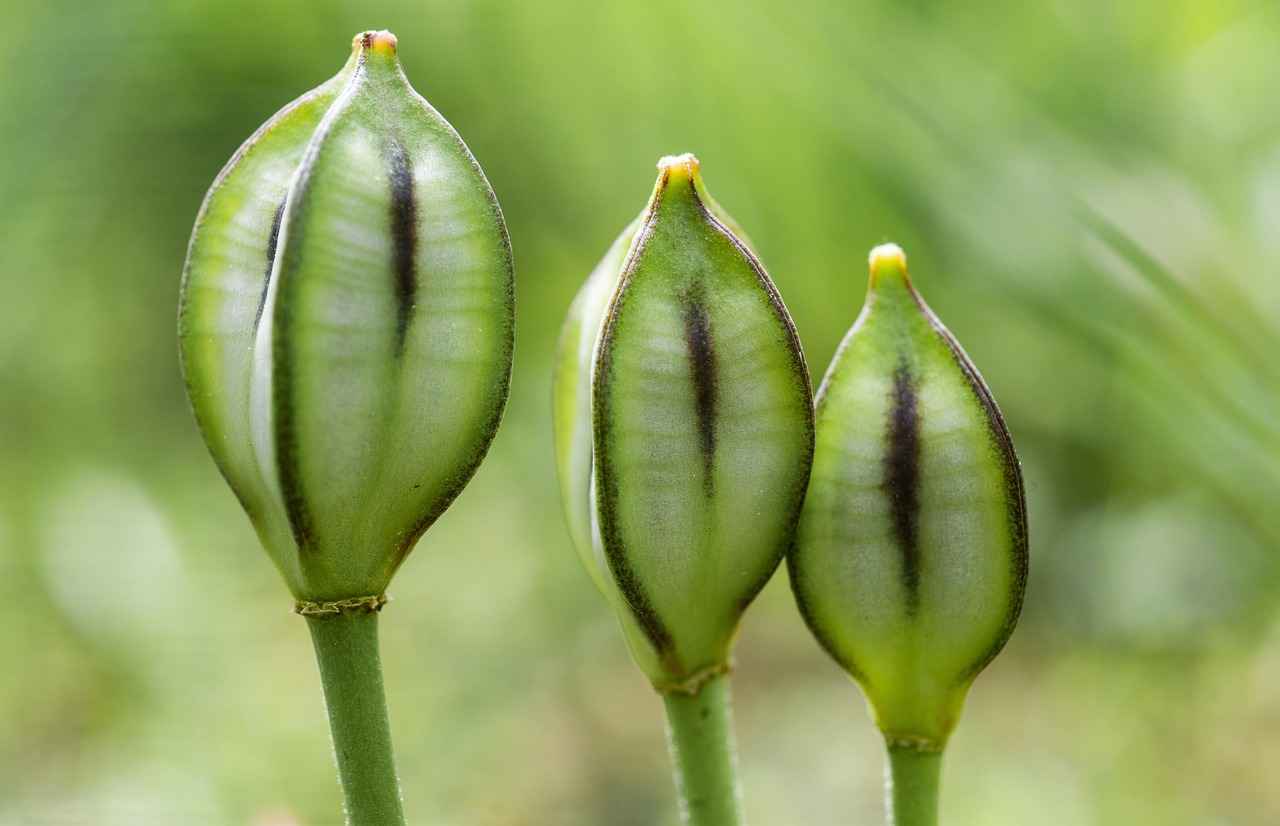This article explores the potential side effects of chia seeds specifically in females, providing comprehensive insights to help women make informed dietary choices.
What Are Chia Seeds?
Chia seeds are tiny black seeds derived from the Salvia hispanica plant. They are celebrated for their rich nutritional profile, which includes high levels of omega-3 fatty acids, fiber, protein, and various essential minerals. These seeds have gained popularity as a superfood, often incorporated into smoothies, salads, and baked goods.
Are There Any Side Effects of Chia Seeds?
While chia seeds offer numerous health benefits, they can also lead to certain side effects, especially when consumed in excess or without adequate hydration.
- Digestive Issues from Chia Seeds: Some women may experience digestive discomfort, such as bloating or gas, particularly if they are not accustomed to high-fiber diets. This can be exacerbated by rapid increases in chia seed intake.
- How to Minimize Digestive Discomfort: To reduce potential digestive issues, gradually increasing chia seed consumption and ensuring proper hydration is advisable. Soaking chia seeds before consumption can also aid in digestion.
- Signs of Overconsumption: Recognizing symptoms of overconsumption, such as severe bloating, abdominal pain, or changes in bowel movements, can help women adjust their intake levels appropriately.
Allergic Reactions to Chia Seeds:
Though rare, some females may experience allergic reactions to chia seeds. Symptoms can include itching, hives, or in severe cases, anaphylaxis. Women with known allergies to other seeds should exercise caution.
Can Chia Seeds Affect Hormonal Balance?
Chia seeds contain phytoestrogens, which are plant-derived compounds that can mimic estrogen in the body. This can be particularly relevant for women experiencing hormonal fluctuations during menstruation or menopause.
- Understanding Phytoestrogens: These compounds may influence hormonal balance, potentially affecting menstrual cycles and overall hormonal health.
- Impact on Menstrual Cycle: Some women may notice changes in their menstrual cycles when consuming chia seeds regularly, necessitating careful monitoring of their intake.
How Do Chia Seeds Interact with Medications?
Chia seeds can interact with certain medications, particularly blood thinners, due to their high omega-3 fatty acid content. Women on such medications should consult their healthcare provider before incorporating chia seeds into their diets.
- Consulting Healthcare Professionals: It’s essential for women to discuss any dietary changes with healthcare providers, especially if they are on medication or have pre-existing health conditions.
- Safe Consumption Guidelines: Establishing safe consumption guidelines can help mitigate potential interactions, ensuring women can enjoy the benefits of chia seeds without adverse effects.
What Are the Nutritional Benefits of Chia Seeds?
Despite the potential side effects, chia seeds are packed with nutrients, offering significant health benefits when consumed mindfully.
- Heart Health Benefits: The omega-3 fatty acids in chia seeds can support heart health by lowering cholesterol levels and reducing inflammation, making them a heart-friendly food choice.
- Weight Management with Chia Seeds: Incorporating chia seeds into a balanced diet may aid in weight management, as they promote satiety and help control appetite, making it easier to maintain a healthy weight.
How to Incorporate Chia Seeds into Your Diet?
Finding creative ways to incorporate chia seeds into daily meals can maximize their benefits while minimizing potential side effects.
- Chia Seed Recipes for Women: Exploring various recipes, such as chia pudding or smoothies, can make chia seeds a delicious addition to meals, enhancing both flavor and nutritional value.
- Best Practices for Consumption: Adopting best practices for chia seed consumption, such as soaking them before eating, can improve digestibility and nutrient absorption.

What Are Chia Seeds?
Chia seeds, originating from the Salvia hispanica plant, are small, black seeds that have gained immense popularity due to their remarkable nutritional profile. These seeds are not only tiny but also packed with essential nutrients that can significantly contribute to a healthy diet.
One of the standout features of chia seeds is their high content of omega-3 fatty acids, which are crucial for heart health. These fatty acids are known to reduce inflammation, lower blood pressure, and improve overall cardiovascular function. In addition to omega-3s, chia seeds are an excellent source of dietary fiber, providing about 11 grams per ounce. This fiber content aids in digestion, promotes a feeling of fullness, and can help regulate blood sugar levels.
Furthermore, chia seeds are rich in protein, containing all nine essential amino acids, making them a fantastic plant-based protein source. This quality is particularly beneficial for vegetarians and vegans looking to meet their protein needs. In addition to these macronutrients, chia seeds also provide a variety of micronutrients, including calcium, magnesium, and phosphorus, which are vital for bone health and metabolic functions.
Chia seeds can play a significant role in enhancing women’s health. Their high fiber content can help in managing weight, as it promotes satiety and reduces overall calorie intake. Additionally, the omega-3 fatty acids in chia seeds can support hormonal balance, which is crucial for women, especially during menstruation and menopause.
Yes, incorporating chia seeds into your diet can significantly enhance digestive health. The soluble fiber in chia seeds absorbs water and forms a gel-like substance in the stomach, which aids in digestion and prevents constipation. To maximize these benefits, it is essential to consume chia seeds with adequate hydration; this ensures that the seeds can expand properly in the digestive tract.
There are numerous ways to incorporate chia seeds into your daily diet. Here are some popular methods:
- Chia Pudding: Soak chia seeds in your choice of milk or yogurt overnight to create a delicious and nutritious pudding.
- Smoothies: Blend chia seeds into your favorite smoothies for an added nutritional boost.
- Baking: Add chia seeds to baked goods like muffins or bread for added texture and nutrients.
- Salads: Sprinkle chia seeds on top of salads for an extra crunch and nutritional enhancement.
While chia seeds are generally safe for most people, it is essential to consume them in moderation. Overconsumption may lead to digestive issues, such as bloating or gas, especially for those not accustomed to high-fiber diets. It’s advisable to start with a small amount and gradually increase your intake. Additionally, individuals with certain medical conditions or those taking specific medications should consult a healthcare professional before adding chia seeds to their diet.
In conclusion, chia seeds are a powerhouse of nutrition, offering numerous health benefits, particularly for women. Their versatility in the kitchen makes them easy to incorporate into various meals, ensuring that you can enjoy their advantages while maintaining a balanced diet.

Are There Any Side Effects of Chia Seeds?
Chia seeds have gained popularity for their numerous health benefits, but it’s essential to understand that they can also lead to certain side effects, especially when consumed in excess or without adequate hydration. This section delves into the potential side effects of chia seeds, particularly focusing on the implications for women.
While chia seeds are packed with nutrients, including omega-3 fatty acids, fiber, and protein, their consumption must be approached with care. Overindulgence can lead to various health issues. Here are some common side effects:
- Digestive Discomfort: Many women report experiencing digestive issues such as bloating, gas, or abdominal pain when they introduce chia seeds into their diet too quickly. This is often due to the high fiber content.
- Allergic Reactions: Although rare, some individuals may have allergic reactions to chia seeds, which can manifest as itching, hives, or, in severe cases, anaphylaxis.
- Hormonal Fluctuations: Chia seeds contain phytoestrogens, which can mimic estrogen in the body. This may be particularly relevant for women who are experiencing hormonal changes.
- Medication Interactions: Those on certain medications, especially blood thinners, should be cautious as the omega-3 fatty acids in chia seeds can enhance the effects of these drugs.
The high fiber content in chia seeds can lead to digestive discomfort if consumed in large quantities without adequate hydration. It is advisable to start with small amounts and gradually increase intake. Drinking plenty of water can help mitigate these effects.
Women should be aware of the signs of overconsumption, which may include:
- Severe bloating
- Abdominal pain
- Changes in bowel habits
If any of these symptoms occur, it may be necessary to reduce chia seed intake.
Some women may experience allergic reactions to chia seeds. Symptoms can vary from mild itching or hives to severe reactions like anaphylaxis. It is crucial to monitor any adverse effects after consuming chia seeds, especially if you have a history of food allergies.
Chia seeds contain phytoestrogens, which can influence hormonal balance. For women undergoing hormonal fluctuations, such as during menstruation or menopause, it’s essential to monitor how chia seeds affect their body.
Women taking medications, particularly blood thinners, should consult healthcare providers before adding chia seeds to their diet. The omega-3 fatty acids in chia seeds can interact with these medications, potentially increasing the risk of bleeding.
To enjoy the benefits of chia seeds while minimizing potential side effects, consider the following guidelines:
- Start with small amounts (1 tablespoon) and gradually increase.
- Soak chia seeds in water or other liquids to improve digestibility.
- Ensure adequate hydration throughout the day.
- Consult with a healthcare professional if you have existing health conditions or are on medication.
In conclusion, while chia seeds are a nutritious addition to the diet, being aware of their potential side effects is crucial, especially for women. By following safe consumption practices, women can enjoy the health benefits of chia seeds without experiencing adverse effects.
Digestive Issues from Chia Seeds
When it comes to incorporating chia seeds into a diet, many women are drawn to their numerous health benefits. However, it is equally important to be aware of potential side effects, particularly concerning digestive health. This article delves into the digestive issues that some women may encounter when consuming chia seeds, especially if they are not accustomed to high-fiber diets.
Chia seeds are packed with fiber, which is beneficial for digestive health. However, for those who are not used to high-fiber foods, introducing chia seeds too quickly can lead to digestive discomfort. Symptoms may include:
- Bloating
- Gas
- Abdominal cramps
- Constipation
The primary reason behind digestive issues is the high fiber content in chia seeds. One ounce of chia seeds contains approximately 11 grams of fiber, which is nearly one-third of the recommended daily intake for women. For those not accustomed to such levels of fiber, this sudden increase can overwhelm the digestive system, leading to discomfort.
To reduce the likelihood of experiencing digestive issues, women can take several proactive steps:
- Gradual Introduction: Start with small amounts of chia seeds, such as one teaspoon, and gradually increase the quantity over time.
- Hydration: Chia seeds absorb up to 12 times their weight in water. Therefore, it is crucial to drink plenty of fluids, especially water, when consuming chia seeds.
- Soaking: Soaking chia seeds in water or another liquid before consumption can help make them easier to digest.
Being aware of the signs of overconsumption is essential for maintaining digestive health. Symptoms such as severe bloating, persistent gas, or abdominal pain may indicate that the intake of chia seeds is too high. If these symptoms occur, it may be beneficial to reduce the quantity consumed and consult a healthcare professional if necessary.
For women who experience ongoing digestive issues after consuming chia seeds, it is advisable to consult with a healthcare provider. They can provide personalized recommendations based on individual health needs and dietary habits.
Chia seeds can be a nutritious addition to a woman’s diet, offering numerous health benefits. However, it is vital to approach their consumption mindfully, especially for those who are not accustomed to high-fiber foods. By gradually introducing chia seeds, staying hydrated, and recognizing the signs of digestive discomfort, women can enjoy the benefits of these tiny seeds without adverse effects.
How to Minimize Digestive Discomfort
Chia seeds have gained immense popularity due to their numerous health benefits, particularly for women. However, as with any food, they can cause some digestive discomfort if not consumed properly. To address this concern, it is essential to understand how to minimize these issues effectively.
One of the most effective ways to avoid digestive problems is to gradually increase chia seed intake. Starting with a small amount, such as one teaspoon, can help your digestive system adjust to the increased fiber content. As your body becomes accustomed to this change, you can slowly increase the amount to one or two tablespoons per day.
Another critical factor in preventing digestive discomfort is ensuring adequate water consumption. Chia seeds can absorb up to 12 times their weight in water, forming a gel-like substance. This property can be beneficial for digestion, but it also means that not drinking enough water can lead to bloating and constipation. It is advisable to drink at least 8-10 glasses of water daily, especially when incorporating chia seeds into your diet.
Soaking chia seeds before consumption is a best practice that can significantly enhance digestibility. When soaked in water or other liquids for about 30 minutes, chia seeds swell and form a gel, which makes them easier to digest. This pre-soaking method not only improves nutrient absorption but also minimizes the risk of gastrointestinal discomfort.
Incorporating chia seeds into meals with other fiber-rich foods can help balance their effects. For instance, adding chia seeds to smoothies, yogurt, or oatmeal can provide additional nutrients while making the meal more digestible. Pairing chia seeds with fruits or nuts can also enhance their flavor and texture, making them a delightful addition to your diet.
It’s essential to pay attention to how your body reacts after consuming chia seeds. If you experience symptoms like bloating, gas, or abdominal pain, it may indicate that you are consuming too many seeds too quickly. Adjusting your intake and allowing your body time to adapt can help alleviate these symptoms.
If you have existing digestive issues or are unsure about how to incorporate chia seeds into your diet, consulting with a healthcare professional or a registered dietitian can provide personalized guidance. They can help you determine the appropriate amount of chia seeds for your individual needs and monitor any potential side effects.
Incorporating chia seeds into your diet can offer numerous health benefits, but it is crucial to do so mindfully. By gradually increasing your intake, ensuring proper hydration, and listening to your body, you can minimize digestive discomfort and enjoy the many advantages that chia seeds have to offer. With these strategies in place, women can confidently add this superfood to their diets without fear of adverse effects.
Signs of Overconsumption
When it comes to incorporating chia seeds into a woman’s diet, understanding the is crucial. While these tiny seeds are packed with nutrients, consuming them in excess can lead to a variety of discomforts. Recognizing these signs early can empower women to make necessary adjustments to their intake levels, ensuring they enjoy the benefits without the drawbacks.
What Are the Common Signs of Overconsumption?
- Severe Bloating: One of the most common signs of overconsumption is severe bloating. Chia seeds are high in fiber, and when consumed in large amounts, they can absorb water and expand in the digestive system, leading to discomfort.
- Abdominal Pain: Alongside bloating, abdominal pain may occur, particularly if the body is not used to high-fiber foods. This can manifest as cramping or general discomfort in the stomach area.
- Gas and Flatulence: An increase in gas production can also indicate that the body is struggling to digest the excess chia seeds. This can be particularly uncomfortable and embarrassing.
- Changes in Bowel Movements: Overconsumption may lead to alterations in bowel habits, such as constipation or diarrhea, as the digestive system tries to cope with the high fiber intake.
How Can Women Adjust Their Intake Levels?
To mitigate these symptoms, it’s important for women to monitor their chia seed consumption closely. Here are some practical tips:
- Start Small: Begin with a small amount of chia seeds, such as one teaspoon, and gradually increase the intake as the body adjusts.
- Stay Hydrated: Drink plenty of water throughout the day. Chia seeds absorb a significant amount of water, and adequate hydration can help prevent digestive issues.
- Listen to Your Body: Pay attention to how your body reacts after consuming chia seeds. If discomfort arises, it may be a sign to reduce your intake.
- Incorporate Variety: Instead of relying solely on chia seeds for fiber, include a variety of fiber sources in your diet, such as fruits, vegetables, and whole grains.
Why Is It Important to Recognize These Signs?
Understanding and recognizing the signs of overconsumption is essential for maintaining a healthy diet. Ignoring these symptoms can lead to more serious digestive issues and discomfort, which can deter women from reaping the benefits of chia seeds altogether. By adjusting their intake levels based on these signs, women can enjoy the nutritional benefits of chia seeds while avoiding negative side effects.
In conclusion, being aware of the signs of overconsumption of chia seeds is vital for women who wish to include them in their diets. By starting with small amounts, staying hydrated, and listening to their bodies, women can effectively manage their chia seed intake and enjoy all the health benefits these tiny seeds have to offer.
Allergic Reactions to Chia Seeds
Chia seeds have gained immense popularity in recent years due to their numerous health benefits. However, it’s essential to be aware of potential side effects, particularly for women. One concern that may arise is the possibility of . Although these reactions are relatively rare, they can manifest in various ways, potentially leading to serious health issues.
An allergic reaction occurs when the immune system mistakenly identifies a harmless substance as a threat. In the case of chia seeds, some females may experience symptoms such as:
- Itching – This can occur on various parts of the body, including the skin and inside the mouth.
- Hives – Raised, itchy welts can develop on the skin, often as a response to allergens.
- Anaphylaxis – In severe cases, allergic reactions can escalate to anaphylaxis, a life-threatening condition that requires immediate medical attention.
While most individuals can safely consume chia seeds, certain groups may be more susceptible to allergic reactions. For instance, women with a history of food allergies or those who are allergic to other seeds, such as flaxseed or sesame, may have an increased risk. It’s crucial for these individuals to exercise caution when introducing chia seeds into their diet.
Being aware of the signs of an allergic reaction is vital for prompt intervention. If you experience any of the following symptoms after consuming chia seeds, it is essential to seek medical advice:
- Swelling of the face, lips, or throat
- Difficulty breathing or wheezing
- Rapid heartbeat or dizziness
If you suspect that you are having an allergic reaction to chia seeds, it is important to:
- Stop consuming chia seeds immediately.
- Seek medical attention if symptoms are severe or if anaphylaxis is suspected.
- Inform your healthcare provider about your reaction for further evaluation and management.
To minimize the risk of allergic reactions, consider the following precautions:
- Start small – If you are new to chia seeds, begin with a small amount to see how your body reacts.
- Monitor your body – Keep track of any symptoms after consuming chia seeds.
- Consult a healthcare professional if you have concerns about allergies or food sensitivities.
While chia seeds offer numerous health benefits, it is crucial for women to be aware of the potential for allergic reactions. By understanding the symptoms, recognizing who is at risk, and taking necessary precautions, you can enjoy the nutritional advantages of chia seeds safely. Always consult with a healthcare provider if you have any concerns about your diet or potential allergies.

Can Chia Seeds Affect Hormonal Balance?
Chia seeds have gained popularity in recent years, not only for their nutritional benefits but also for their potential effects on hormonal balance, particularly in women. Understanding how these tiny seeds can influence hormonal fluctuations is essential for making informed dietary choices.
What Are Phytoestrogens?
Chia seeds are rich in phytoestrogens, which are plant-derived compounds that mimic estrogen in the body. These compounds can bind to estrogen receptors and may influence various bodily functions, including menstrual cycles and menopausal symptoms. For women experiencing hormonal changes, the phytoestrogen content in chia seeds could be particularly relevant.
How Do Phytoestrogens Work?
Phytoestrogens can have both estrogenic and anti-estrogenic effects, depending on the existing levels of estrogen in the body. This dual action means that for some women, consuming chia seeds may help alleviate symptoms of hormonal imbalance, such as mood swings and hot flashes, while for others, it could potentially lead to exacerbated symptoms.
Impact on Menstrual Cycle
Some women report changes in their menstrual cycles after incorporating chia seeds into their diets. These changes can include alterations in cycle length, flow intensity, or even the onset of menstrual symptoms. It is essential for women to monitor their cycles closely when introducing chia seeds, especially if they are already experiencing hormonal fluctuations.
Are There Risks Involved?
While chia seeds can offer benefits, it is crucial to approach their consumption with caution. Overconsumption may lead to digestive issues, which can indirectly affect hormonal balance by causing stress and discomfort. Additionally, women with hormone-sensitive conditions should consult healthcare professionals before adding chia seeds to their diets.
How to Use Chia Seeds Safely?
- Start with small amounts, gradually increasing intake to assess tolerance.
- Soak chia seeds in water or other liquids before consumption to improve digestibility.
- Keep track of any changes in your body or menstrual cycle after introducing chia seeds.
- Consult a healthcare provider if you have existing hormonal issues or are on medication.
Conclusion
In conclusion, chia seeds can potentially influence hormonal balance due to their phytoestrogen content. While they may offer benefits for some women, it is essential to approach their consumption mindfully. By understanding the effects of chia seeds and monitoring individual responses, women can make informed dietary choices that support their overall health and well-being.
Understanding Phytoestrogens
is crucial for women who are looking to optimize their health through dietary choices. These plant-derived compounds have garnered attention for their ability to mimic estrogen in the body, which can have various implications for female health.
Phytoestrogens are naturally occurring compounds found in various plants. They are structurally similar to estrogen, allowing them to bind to estrogen receptors in the body. Common sources of phytoestrogens include:
- Flaxseeds
- Soy products
- Chickpeas
- Whole grains
Understanding the effects of phytoestrogens can empower women to make informed dietary choices. Research suggests that these compounds may play a role in:
- Menopausal Symptoms Relief: Some studies indicate that phytoestrogens can help alleviate symptoms such as hot flashes and night sweats.
- Bone Health: Phytoestrogens may contribute to maintaining bone density, reducing the risk of osteoporosis.
- Heart Health: They may also help in lowering cholesterol levels and improving overall heart health.
While phytoestrogens can offer health benefits, it is essential to be aware of potential risks, particularly for women with certain health conditions. For instance:
- Hormonal Imbalances: Excessive intake might disrupt hormonal balance, especially in women with hormone-sensitive conditions.
- Thyroid Issues: Some studies suggest that high levels of phytoestrogens may interfere with thyroid function.
Incorporating phytoestrogens into your diet can be beneficial, but moderation is key. Here are some practical tips:
- Start with small amounts of soy products or flaxseeds and observe how your body reacts.
- Pair phytoestrogen-rich foods with a balanced diet to ensure nutritional variety.
- Consult with a healthcare professional if you have existing health conditions or are on medications.
In conclusion, understanding phytoestrogens can significantly benefit women looking to enhance their health through dietary choices. By recognizing both the potential benefits and risks, women can make informed decisions that align with their health goals.
Impact on Menstrual Cycle
Understanding the impact of chia seeds on the menstrual cycle is essential for women who are looking to incorporate these nutrient-dense seeds into their diets. While chia seeds are celebrated for their numerous health benefits, including high levels of omega-3 fatty acids, fiber, and antioxidants, some women may experience changes in their menstrual cycles when consuming them regularly. It is crucial to monitor these changes to ensure that they do not interfere with overall health.
Chia seeds contain phytoestrogens, which are plant-derived compounds that can mimic estrogen in the body. This property can lead to hormonal fluctuations that may affect the menstrual cycle. Women who are particularly sensitive to hormonal changes may notice variations in their cycle’s length, flow, or symptoms.
- Irregular Cycles: Some women may experience irregularities in their menstrual cycles, such as missed periods or cycles that are longer or shorter than usual.
- Changes in Flow: The flow of menstrual blood may become lighter or heavier, depending on how the body reacts to the phytoestrogens in chia seeds.
- Altered Symptoms: Women may notice changes in premenstrual symptoms, including mood swings, bloating, or cramps, which can be exacerbated or alleviated by chia seed consumption.
For women who are trying to conceive or are experiencing significant hormonal changes, monitoring the menstrual cycle while consuming chia seeds is essential. Keeping track of any changes can help identify if chia seeds are the cause and whether adjustments to dietary intake are necessary.
To effectively monitor menstrual changes related to chia seed consumption, consider the following steps:
- Keep a Journal: Document your menstrual cycle, noting any changes in flow, duration, and symptoms.
- Adjust Intake: If you notice significant changes, consider reducing the amount of chia seeds consumed or consulting with a healthcare professional.
- Stay Hydrated: Ensure adequate hydration, as chia seeds absorb a significant amount of water, which can impact digestion and overall health.
Before making any significant dietary changes, especially if you are experiencing notable shifts in your menstrual cycle, it is advisable to consult with a healthcare provider. They can offer personalized advice and help determine if chia seeds are suitable for your individual health needs.
In summary, while chia seeds can offer numerous health benefits, they may also influence menstrual cycles in some women. By staying informed and monitoring any changes, women can make educated decisions about their dietary choices and overall health.

How Do Chia Seeds Interact with Medications?
Chia seeds have gained popularity as a superfood, praised for their nutritional benefits. However, it is essential to understand how they can interact with medications, particularly for women who may be taking specific treatments. This article delves into the interactions of chia seeds with medications, focusing on their implications for women.
Chia seeds are small, nutrient-dense seeds derived from the Salvia hispanica plant. They are rich in omega-3 fatty acids, fiber, protein, and various essential minerals. While these attributes contribute to their health benefits, they also raise concerns regarding potential interactions with medications.
Chia seeds can interact with certain medications, particularly blood thinners. This interaction is primarily due to their high content of omega-3 fatty acids, which can have a blood-thinning effect. For women on anticoagulants such as warfarin or aspirin, the addition of chia seeds to their diet may enhance the effects of these medications, potentially leading to an increased risk of bleeding.
Omega-3 fatty acids are essential fats that play a vital role in heart health and inflammation reduction. However, when combined with blood-thinning medications, they can amplify the anticoagulant effects. Women should be particularly cautious if they are already consuming fish oil supplements or other omega-3 sources, as this could lead to excessive thinning of the blood.
For women considering incorporating chia seeds into their diet, consulting with a healthcare professional is crucial. This is especially true for those who are on blood-thinning medications or have existing health conditions. A healthcare provider can offer personalized advice and help determine safe consumption levels, ensuring that women can enjoy the benefits of chia seeds without adverse effects.
Women should be aware of signs that may indicate potential interactions between chia seeds and their medications. Symptoms such as unusual bruising, prolonged bleeding from cuts, or unexpected nosebleeds could signal that the blood-thinning effects are heightened. If any of these symptoms occur, it is essential to seek medical advice promptly.
To mitigate the risk of interactions, women should consider the following guidelines when consuming chia seeds:
- Start Slowly: Gradually introduce chia seeds into your diet to assess your body’s response.
- Monitor Intake: Limit consumption to a moderate amount, such as 1-2 tablespoons per day.
- Stay Hydrated: Ensure adequate water intake, as chia seeds absorb liquid and can expand in the stomach.
- Consult Regularly: Maintain ongoing communication with your healthcare provider regarding your dietary choices.
Aside from blood thinners, chia seeds may also interact with other medications, including those for diabetes and high blood pressure. The seeds can influence blood sugar levels and blood pressure, necessitating careful monitoring for women on such treatments. Always consult a healthcare provider before making dietary changes.
In summary, while chia seeds offer numerous health benefits, women must be cautious about their interactions with certain medications, particularly blood thinners. By understanding these interactions and consulting with healthcare professionals, women can safely incorporate chia seeds into their diets and enjoy their nutritional advantages.
Consulting Healthcare Professionals
When considering the incorporation of chia seeds into a diet, it is essential for women to prioritize their health and well-being. Consulting with healthcare providers before making dietary changes is crucial, particularly for those who are on medication or have pre-existing health conditions. This precaution can help mitigate potential risks and ensure that any new food introduced into the diet complements existing treatments and health goals.
Women may face unique health challenges that necessitate a tailored approach to nutrition. Consulting a healthcare professional allows for a personalized assessment of dietary needs and potential interactions. For example, chia seeds are high in omega-3 fatty acids, which can affect blood clotting and may interact with blood thinners. This interaction could lead to complications if not monitored.
Women with specific health conditions, such as diabetes, heart disease, or hormonal imbalances, should be particularly cautious. Chia seeds can influence blood sugar levels and hormone balance due to their nutrient composition. Therefore, a healthcare provider can help determine if chia seeds are suitable for individual health circumstances.
Many medications can interact with dietary changes. For instance, those on anticoagulants or antidepressants should consult their doctors before adding chia seeds to their diet. The seeds’ high fiber content can also affect the absorption of certain medications, making it necessary to discuss timing and quantity with a healthcare professional.
Women should be aware of the potential side effects of chia seeds, including digestive issues and allergic reactions. Consulting a healthcare provider can help identify any pre-existing conditions that might exacerbate these side effects. For example, those with irritable bowel syndrome (IBS) may experience discomfort with high-fiber foods like chia seeds.
Healthcare professionals can provide guidelines for safely incorporating chia seeds into the diet. This includes recommendations on portion sizes and preparation methods, such as soaking the seeds to enhance digestibility and nutrient absorption. Gradual introduction can also help the body adjust and minimize any adverse effects.
After adding chia seeds to the diet, it is important for women to monitor any changes in their health. Keeping a food diary and noting any symptoms can help in discussions with healthcare providers. This proactive approach ensures that any negative effects can be addressed promptly.
In summary, consulting healthcare professionals before introducing chia seeds into the diet is vital for women. It allows for a comprehensive understanding of individual health needs, potential interactions with medications, and safe consumption practices. By taking these steps, women can enjoy the nutritional benefits of chia seeds while safeguarding their health.
Safe Consumption Guidelines
When it comes to incorporating chia seeds into your diet, establishing is essential for maximizing their benefits while minimizing potential risks. These tiny seeds, packed with nutrients, can offer numerous health advantages, but proper consumption is key to ensuring that women can enjoy these benefits without facing adverse effects.
Safe consumption guidelines serve as a framework for women to enjoy chia seeds responsibly. By understanding the recommended serving sizes and hydration needs, women can avoid common side effects such as digestive discomfort or allergic reactions. Moreover, these guidelines help mitigate potential interactions with medications, particularly for those on blood thinners or other treatments.
- Start Small: For those new to chia seeds, it is advisable to start with a small amount, such as 1 tablespoon per day, to allow the body to adjust.
- Gradual Increase: After a week, women can gradually increase their intake to 2 tablespoons per day, monitoring their body’s response.
- Hydration is Key: Since chia seeds absorb a significant amount of water, it is crucial to drink plenty of fluids, ideally at least 8 ounces of water for every tablespoon of chia seeds consumed.
Proper preparation of chia seeds can enhance their digestibility and nutritional benefits:
- Soaking: Soaking chia seeds in water or other liquids for at least 30 minutes before consumption can help them expand and become easier to digest.
- Incorporation into Meals: Adding soaked chia seeds to smoothies, yogurt, or oatmeal can make them a delicious and nutritious addition to meals.
- Avoiding Overconsumption: Women should be cautious not to exceed the recommended serving sizes to avoid gastrointestinal issues.
Being aware of potential side effects is crucial for safe consumption:
- Digestive Discomfort: If experiencing bloating or gas, it may indicate overconsumption or insufficient hydration.
- Allergic Reactions: Although rare, women should be vigilant for signs of allergies, such as itching or hives, especially if they have a history of food allergies.
Before adding chia seeds to your diet, especially for women with pre-existing health conditions or those taking medications, it is advisable to consult with a healthcare professional. This ensures that chia seeds can be safely integrated into their dietary regimen without any adverse interactions.
By establishing safe consumption guidelines, women can enjoy the numerous health benefits of chia seeds while minimizing the risk of side effects. Proper serving sizes, hydration, and preparation methods are essential components of these guidelines. Ultimately, informed choices lead to a healthier diet and lifestyle.

What Are the Nutritional Benefits of Chia Seeds?
Chia seeds, derived from the Salvia hispanica plant, have gained immense popularity as a superfood due to their remarkable nutritional profile. These tiny seeds are packed with essential nutrients that can significantly contribute to overall health. In this section, we will explore the various nutritional benefits of chia seeds, emphasizing their importance for a balanced diet.
Chia seeds are often hailed for their rich content of omega-3 fatty acids, fiber, protein, and various vitamins and minerals. These components play crucial roles in promoting health and well-being.
One of the most significant benefits of chia seeds is their ability to support heart health. The omega-3 fatty acids found in chia seeds are known to help lower cholesterol levels and reduce inflammation in the body. Regular consumption of these seeds may lead to a decrease in the risk of heart disease, making them an excellent addition to a heart-healthy diet.
Chia seeds are an excellent source of dietary fiber, which is essential for maintaining healthy digestion. When consumed, they absorb water and expand, forming a gel-like substance that aids in bowel regularity and prevents constipation. Incorporating chia seeds into your diet can promote a healthy gut and improve overall digestive function.
For those looking to manage their weight, chia seeds can be a valuable ally. Their high fiber content promotes a feeling of fullness, helping to control appetite and reduce overall calorie intake. By including chia seeds in meals, individuals can feel satisfied longer, which can be beneficial for weight management efforts.
Chia seeds are also rich in essential minerals, including calcium, which is vital for maintaining strong bones. A serving of chia seeds provides a significant amount of calcium, making them an excellent option for those who may not consume dairy products. This mineral, along with others found in chia seeds such as magnesium and phosphorus, supports bone density and overall skeletal health.
Chia seeds are loaded with antioxidants, which help combat oxidative stress in the body. These antioxidants can protect cells from damage caused by free radicals, potentially reducing the risk of chronic diseases and promoting longevity. Including chia seeds in your diet can enhance your antioxidant intake, contributing to better overall health.
Incorporating chia seeds into your daily meals is easy and versatile. Here are some practical suggestions:
- Add them to smoothies for an extra nutrient boost.
- Sprinkle chia seeds on yogurt or oatmeal for added texture and nutrition.
- Use chia seeds as an egg substitute in baking by mixing one tablespoon of chia seeds with three tablespoons of water.
- Mix them into salads or dressings for a nutritious crunch.
In conclusion, the nutritional benefits of chia seeds are vast, offering significant contributions to heart health, digestion, weight management, bone health, and antioxidant support. By understanding and utilizing these benefits, individuals can enhance their overall well-being and make informed dietary choices.
Heart Health Benefits
Chia seeds have garnered significant attention in the health and wellness community due to their impressive nutritional profile. Among their many benefits, one area where they shine is heart health. This article delves into how chia seeds contribute positively to cardiovascular well-being and what women should know about incorporating them into their diets.
Chia seeds are particularly rich in omega-3 fatty acids, which are essential fats that play a crucial role in maintaining heart health. These fatty acids are known to help lower cholesterol levels and reduce inflammation, both of which are vital for a healthy cardiovascular system.
The omega-3 fatty acids found in chia seeds, particularly alpha-linolenic acid (ALA), have been linked to numerous heart health benefits. Research indicates that ALA can help:
- Lower triglyceride levels: High triglycerides are a risk factor for heart disease.
- Reduce blood pressure: Maintaining healthy blood pressure levels is essential for cardiovascular health.
- Improve arterial function: Omega-3s can enhance the flexibility of blood vessels, promoting better blood flow.
Chronic inflammation is a significant contributor to heart disease. The anti-inflammatory properties of omega-3 fatty acids can help mitigate this risk. By incorporating chia seeds into your diet, you may experience:
- Decreased markers of inflammation: Regular consumption can lower levels of C-reactive protein (CRP), a marker associated with inflammation.
- Improved heart function: Reducing inflammation can lead to better overall heart function and health.
Studies have shown that chia seeds can help improve lipid profiles by:
- Increasing HDL cholesterol: This “good” cholesterol helps remove other forms of cholesterol from your bloodstream.
- Lowering LDL cholesterol: High levels of “bad” cholesterol can lead to plaque buildup in arteries, increasing the risk of heart disease.
To reap the heart health benefits of chia seeds, consider the following tips for incorporation:
- Add to smoothies: Blend chia seeds into your morning smoothie for a nutrient boost.
- Sprinkle on salads: Use chia seeds as a crunchy topping for salads.
- Make chia pudding: Combine chia seeds with your choice of milk and let them soak overnight for a delicious breakfast option.
In summary, chia seeds are a powerhouse of nutrients that can significantly benefit heart health, especially for women. With their rich content of omega-3 fatty acids, they can help lower cholesterol levels, reduce inflammation, and improve overall cardiovascular function. By incorporating chia seeds into your diet, you are taking a proactive step towards maintaining a healthy heart.
Weight Management with Chia Seeds
When it comes to weight management, many individuals are constantly on the lookout for effective dietary solutions. One such option that has gained significant attention in recent years is the incorporation of chia seeds into daily meals. These tiny seeds are not only nutritious but also have properties that may assist in controlling appetite and promoting feelings of fullness.
Chia seeds are rich in soluble fiber, which absorbs water and expands in the stomach. This expansion creates a sense of fullness, helping to curb hunger and reduce overall calorie intake. Studies suggest that the gel-like consistency formed when chia seeds are soaked can delay gastric emptying, leading to prolonged satiety. This means that incorporating chia seeds into your meals can help you feel satisfied for longer periods.
Many individuals struggle with appetite control, often leading to overeating and weight gain. Chia seeds may offer a solution to this challenge. By adding chia seeds to meals or snacks, individuals can experience a natural reduction in cravings. The high fiber content not only aids digestion but also stabilizes blood sugar levels, preventing spikes that can lead to sudden hunger pangs.
Incorporating chia seeds into your diet is simple and versatile. Here are some practical ways to do so:
- Add chia seeds to smoothies for an extra boost of nutrition.
- Mix them into yogurt or oatmeal for a satisfying breakfast.
- Use them as a thickening agent in soups or sauces.
- Prepare chia pudding by soaking seeds in milk or a dairy-free alternative overnight.
Beyond weight management, chia seeds are packed with essential nutrients. They are an excellent source of omega-3 fatty acids, which are beneficial for heart health. Additionally, they provide protein, antioxidants, and various minerals such as calcium and magnesium. This nutrient density makes chia seeds a valuable addition to a balanced diet.
While chia seeds can aid in short-term appetite control, their role in long-term weight management is equally important. Regular incorporation of chia seeds into a balanced diet can help establish healthier eating patterns and reduce the likelihood of weight regain. By promoting satiety and reducing the urge to snack on unhealthy options, chia seeds may support sustainable weight loss efforts.
While chia seeds offer numerous benefits, it’s essential to consume them mindfully. Overconsumption can lead to digestive discomfort, including bloating or gas. To mitigate this, it is advisable to start with small amounts and gradually increase intake while ensuring adequate hydration. This approach helps the body adjust to the increased fiber intake.
In summary, incorporating chia seeds into a balanced diet can be a valuable strategy for weight management. Their ability to promote satiety and control appetite, combined with their rich nutritional profile, makes them an excellent choice for those looking to maintain a healthy lifestyle. By understanding how to effectively integrate chia seeds into daily meals, individuals can harness their benefits while enjoying a diverse and satisfying diet.

How to Incorporate Chia Seeds into Your Diet?
Incorporating chia seeds into your daily meals is an excellent way to enhance your nutrition. These tiny, nutrient-rich seeds can be easily added to a variety of dishes, making them a versatile ingredient. Here are some effective strategies to maximize the benefits of chia seeds while minimizing any potential side effects.
Chia seeds are packed with omega-3 fatty acids, fiber, and protein, making them a powerhouse of nutrients. By incorporating them into your diet, you can support heart health, improve digestion, and even assist in weight management. However, it’s essential to consume them mindfully to avoid digestive discomfort.
- Breakfast Boost: Add chia seeds to your morning smoothie or oatmeal. They can enhance the texture and provide a nutritious start to your day.
- Chia Pudding: Mix chia seeds with your choice of milk or yogurt, sweeten with honey or maple syrup, and let it sit overnight. This creates a delicious and healthy pudding for breakfast or a snack.
- Baking Ingredient: Incorporate chia seeds into baked goods such as muffins, bread, or pancakes. They can replace eggs in vegan recipes when mixed with water.
- Salads and Dressings: Sprinkle chia seeds over salads or blend them into salad dressings for an added crunch and nutritional boost.
To ensure you get the most out of chia seeds, consider the following best practices:
- Soaking: Soak chia seeds in water or milk before consumption. This helps them expand and become easier to digest, reducing the risk of bloating.
- Gradual Introduction: If you’re new to chia seeds, start with a small amount and gradually increase your intake. This approach can help your digestive system adjust.
- Hydration: Drink plenty of water throughout the day, especially when consuming chia seeds, to aid digestion and prevent discomfort.
Experimenting with chia seeds can be enjoyable and rewarding. Here are a few recipe ideas:
1. Chia Seed Smoothie: - 1 banana - 1 cup spinach - 1 tablespoon chia seeds - 1 cup almond milk Blend until smooth.2. Chia Seed Jam: - 2 cups fresh fruit - 2 tablespoons chia seeds - Sweetener to taste Mash fruit and mix in chia seeds; let sit for 30 minutes.
While chia seeds are generally safe, it’s crucial to monitor your intake. Pay attention to how your body responds, especially if you have digestive sensitivities. If you experience discomfort, consider reducing the amount you consume or adjusting how you incorporate them into your meals.
By following these tips and being mindful of your consumption, you can enjoy the numerous benefits of chia seeds while ensuring a balanced approach to your nutrition.
Chia Seed Recipes for Women
Chia seeds have gained immense popularity in recent years, and for good reason. These tiny seeds are not only packed with nutrients but also versatile enough to be incorporated into various dishes. Exploring various recipes can make chia seeds a delicious addition to meals, enhancing both flavor and nutritional value. In this section, we will delve into some creative and healthy ways to utilize chia seeds in your daily diet.
Chia seeds are a powerhouse of nutrition, offering a plethora of health benefits. They are rich in omega-3 fatty acids, which are essential for heart health, and are an excellent source of fiber, aiding in digestion. Additionally, they provide a good amount of protein and various essential minerals. By incorporating chia seeds into your meals, you can easily boost your nutrient intake without sacrificing taste.
- Chia Seed Pudding: Combine 1/4 cup of chia seeds with 1 cup of almond milk, a splash of vanilla extract, and a sweetener of your choice. Let it sit in the fridge overnight. In the morning, top with fresh fruits and nuts for a delightful breakfast.
- Chia Seed Smoothie: Blend together 1 banana, 1/2 cup of spinach, 1 tablespoon of chia seeds, and 1 cup of your favorite milk. This nutrient-packed smoothie is perfect for a quick breakfast or snack.
- Chia Seed Jam: Mash 2 cups of your favorite berries and mix with 2 tablespoons of chia seeds. Allow the mixture to sit for about 30 minutes until it thickens. This homemade jam is a great topping for toast or yogurt.
- Chia Seed Energy Bites: Mix 1 cup of oats, 1/2 cup of nut butter, 1/4 cup of honey, and 1/4 cup of chia seeds. Roll into small balls and refrigerate for a quick energy-boosting snack.
To maximize the benefits of chia seeds, consider the following best practices:
- Soaking: Soak chia seeds in water or milk before consumption to improve digestibility and nutrient absorption.
- Gradual Introduction: If you are new to chia seeds, start with small amounts to allow your body to adjust to the increased fiber intake.
- Hydration: Ensure you drink plenty of water when consuming chia seeds, as they absorb liquid and can expand in your digestive system.
Incorporating chia seeds into your meals can be a delicious and healthy choice. With their nutritional benefits and versatility, they can enhance a variety of dishes. Whether you choose to make a pudding, smoothie, or energy bites, experimenting with chia seed recipes can lead to exciting culinary discoveries. Remember to follow best practices for consumption to enjoy the full benefits of these tiny seeds.
Best Practices for Consumption
When it comes to incorporating chia seeds into your diet, understanding the best practices for consumption can significantly enhance their health benefits. These tiny seeds are packed with nutrients, but how you prepare and consume them can affect their digestibility and nutrient absorption.
Soaking chia seeds before consumption is a widely recommended practice that can lead to improved digestibility and optimal nutrient absorption. When chia seeds are soaked, they absorb water and expand, forming a gel-like consistency. This process not only makes them easier to digest but also enhances their nutritional profile.
For best results, it is advisable to soak chia seeds for at least 30 minutes to several hours. Some individuals prefer soaking them overnight, allowing for maximum hydration. This soaking process helps to:
- Reduce Anti-Nutrients: Soaking can help decrease the levels of anti-nutrients like phytic acid, which can inhibit the absorption of essential minerals.
- Enhance Nutrient Availability: The gel formed around the seeds may help in the release of nutrients, making them more bioavailable.
- Improve Texture: Soaked chia seeds have a pleasant texture, making them a great addition to smoothies, puddings, and baked goods.
In addition to soaking, there are several other best practices that can optimize your chia seed experience:
- Gradual Introduction: If you are new to chia seeds, start with small amounts and gradually increase your intake. This approach helps your digestive system adjust to the increased fiber content.
- Hydration: Always consume chia seeds with plenty of water. This is crucial as the seeds can absorb up to 12 times their weight in water, potentially leading to dehydration if not consumed with adequate fluids.
- Combine with Other Foods: Mix chia seeds with yogurt, smoothies, or oatmeal. This not only enhances flavor but also provides additional nutrients and helps with digestion.
While chia seeds are generally safe for most individuals, it is essential to consider the following precautions:
- Consult with a Healthcare Provider: If you have any existing health conditions or are on medication, especially blood thinners, consult your healthcare provider before adding chia seeds to your diet.
- Avoid Overconsumption: Stick to recommended serving sizes, typically around 1-2 tablespoons per day, to avoid potential digestive issues.
Incorporating chia seeds into your diet can be a delicious and nutritious choice. By following these best practices, such as soaking them before consumption, you can enhance their digestibility and maximize nutrient absorption. Always remember to listen to your body and make adjustments as needed to enjoy the full benefits of these super seeds.
Frequently Asked Questions
- Can chia seeds cause digestive issues in women?
Yes, some women may experience digestive discomfort like bloating or gas, especially if they are not used to high-fiber diets. It’s important to introduce chia seeds gradually and drink plenty of water to help with digestion.
- Are there any allergic reactions associated with chia seeds?
While rare, some females may have allergic reactions to chia seeds, which can manifest as itching, hives, or in severe cases, anaphylaxis. If you suspect an allergy, it’s best to avoid them and consult a healthcare professional.
- Do chia seeds affect hormonal balance?
Chia seeds contain phytoestrogens, which can mimic estrogen in the body. This may influence hormonal balance, particularly for women experiencing hormonal fluctuations, so it’s wise to monitor any changes.
- How do chia seeds interact with medications?
Chia seeds can interact with certain medications, especially blood thinners, due to their omega-3 fatty acid content. Women on such treatments should consult their healthcare provider before adding chia seeds to their diet.
- What are the nutritional benefits of chia seeds?
Chia seeds are packed with nutrients, including omega-3 fatty acids, fiber, and protein. They can support heart health, improve digestion, and aid in weight management when consumed mindfully.
- What are some best practices for consuming chia seeds?
To maximize benefits and minimize side effects, it’s recommended to soak chia seeds before eating them. This improves digestibility and nutrient absorption, making them a great addition to various meals.












